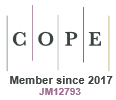Articles citing this paper
Addressing the Anthropocene
A. D. Anbar A B E , S. J. Romaniello A , B. R. Allenby C and W. S. Broecker DA School of Earth and Space Exploration, Arizona State University, Tempe, AZ 85287, USA.
B School of Molecular Sciences, Arizona State University, Tempe, AZ 85287, USA.
C School of Sustainable Engineering and the Built Environment, Ira A. Fulton Schools of Engineering, Arizona State University, Tempe, AZ 85287, USA.
D Lamont-Doherty Earth Observatory, Palisades, NY 10964, USA.
E Corresponding author. Email: anbar@asu.edu
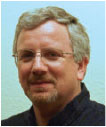
Ariel D. Anbar is a scientist and educator interested in Earth’s past and future evolution as an inhabited world, and the prospects for life beyond. Trained as a geologist and a chemist, Anbar is a President’s Professor at Arizona State University, where he is on the faculty of the School of Earth & Space Exploration and the School of Molecular Sciences, and a Distinguished Sustainability Scholar in the Global Institute of Sustainability. The author or co-author of over 100 refereed papers, Anbar directed ASU’s NASA-funded Astrobiology Program from 2009 to 2015. He now oversees the PlanetWorks initiative dedicated to understanding and preserving Earth’s habitability in the Anthropocene. He is a graduate of Harvard (A.B. 1989) and Caltech (Ph.D. 1996). Anbar is a Fellow of the Geological Society of America, which awarded him the Donath Medal in 2002. He was recognised as an HHMI Professor in 2014, and elected a Fellow of the Geochemical Society and the European Association of Geochemistry in 2015. |
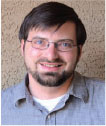
Stephen Romaniello is a research scientist at Arizona State University. He completed his B.A. and M.Sc. at Cornell University followed by his Ph.D. at Arizona State University. His interests include biogeochemistry, isotope geochemistry, cosmochemistry and climate issues. He currently manages the W.M. Keck Laboratory for Environmental Biogeochemistry and the Isotope Cosmochemistry and Geochronology Laboratory at Arizona State University, overseeing a large group of Ph.D. students and post-docs. He is currently serving as lead research scientist for Arizona State University's PlanetWorks Initiative, which focuses on transformative solutions to large-scale environmental and climate challenges. |
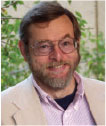
Braden R. Allenby is Lincoln Professor of Engineering and Ethics; President’s Professor of Civil, Environmental, and Sustainable Engineering, and of Law; Founding Chair of the Consortium for Emerging Technologies, Military Operations, and National Security; and Founding Director of the Center for Earth Systems Engineering and Management, at Arizona State University. Dr Allenby received his B.A. from Yale University, his J.D. and M.A. (economics) from the University of Virginia, and his M.Ss. and Ph.D. in Environmental Sciences from Rutgers University. He is past President of the International Society for Industrial Ecology and an AAAS Fellow and a Fellow of the Royal Society for the Arts, Manufactures & Commerce. His areas of expertise include emerging technologies, especially in the military and security domains, Design for Environment, industrial ecology, telework and net-centric organisations, transhumanism, and earth systems engineering and management. In 2008 he was selected by the Carnegie Foundation as 2008 Arizona Professor of the Year. |
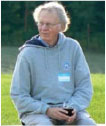
Wallace S. Broecker received his Ph.D. from Columbia University in 1958 and is presently the Newberry Professor at Columbia University’s Lamont-Doherty Earth Observatory. His research is directed toward the role of the oceans in climate change, and he developed the idea of a global ‘conveyor belt’ linking the circulation of the global ocean. Over the course of his scientific career Wally has made major contributions to the science of the carbon cycle and the use of chemical tracers and isotope dating in oceanography. Prof. Broecker received the Vetlesen Prize (Lamont–Doherty Earth Observatory and the G. Unger Vetlesen Foundation) in 1987 and the Crafoord Prize (Royal Swedish Academy of Sciences) in 2006 for his research into the global carbon cycle. |
Environmental Chemistry 13(5) 777-783 https://doi.org/10.1071/EN15115
Submitted: 2 June 2015 Accepted: 10 March 2016 Published: 1 June 2016


